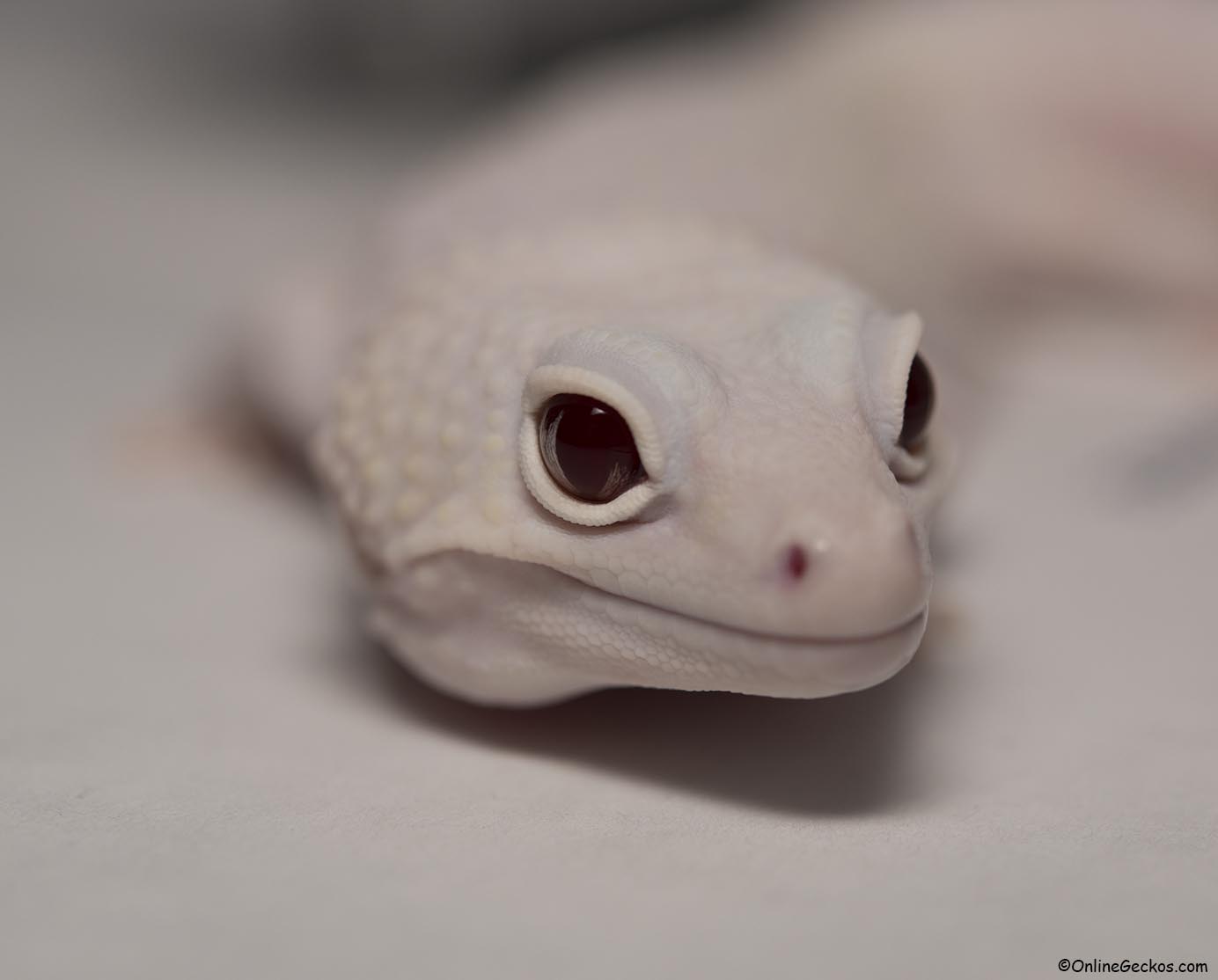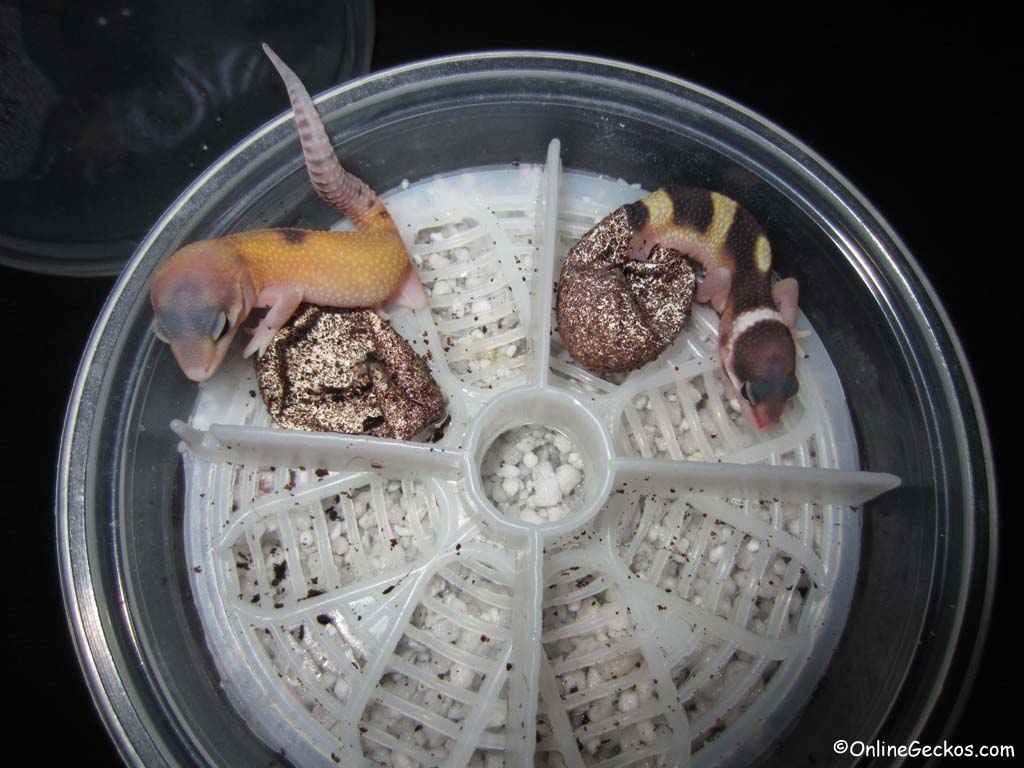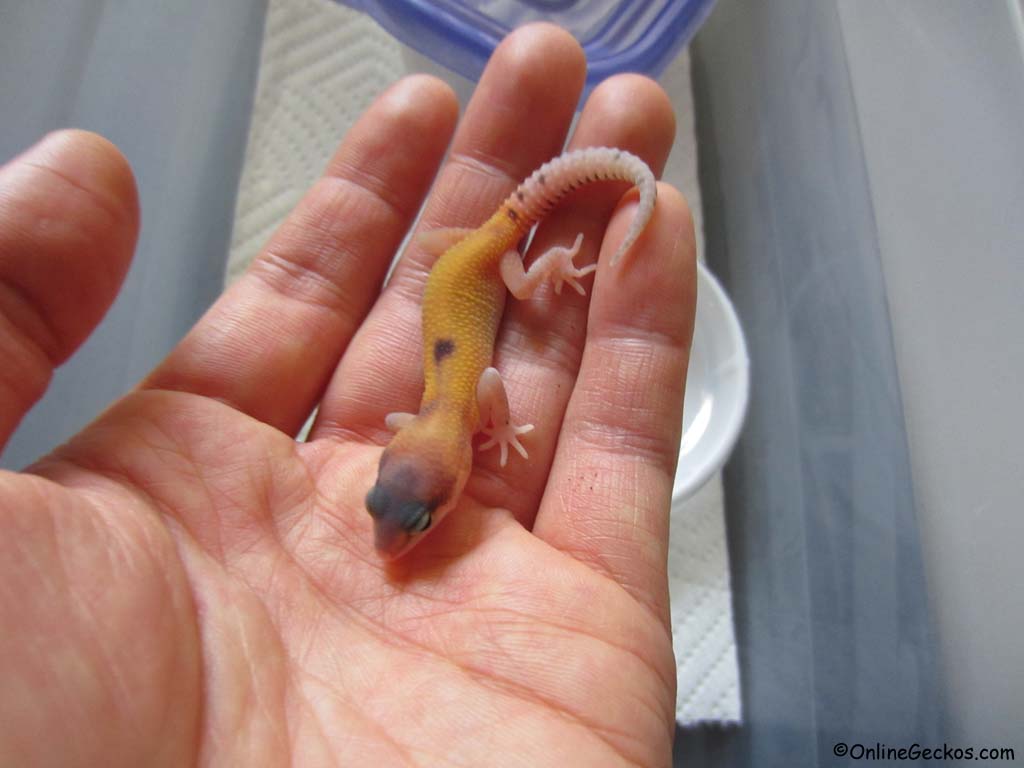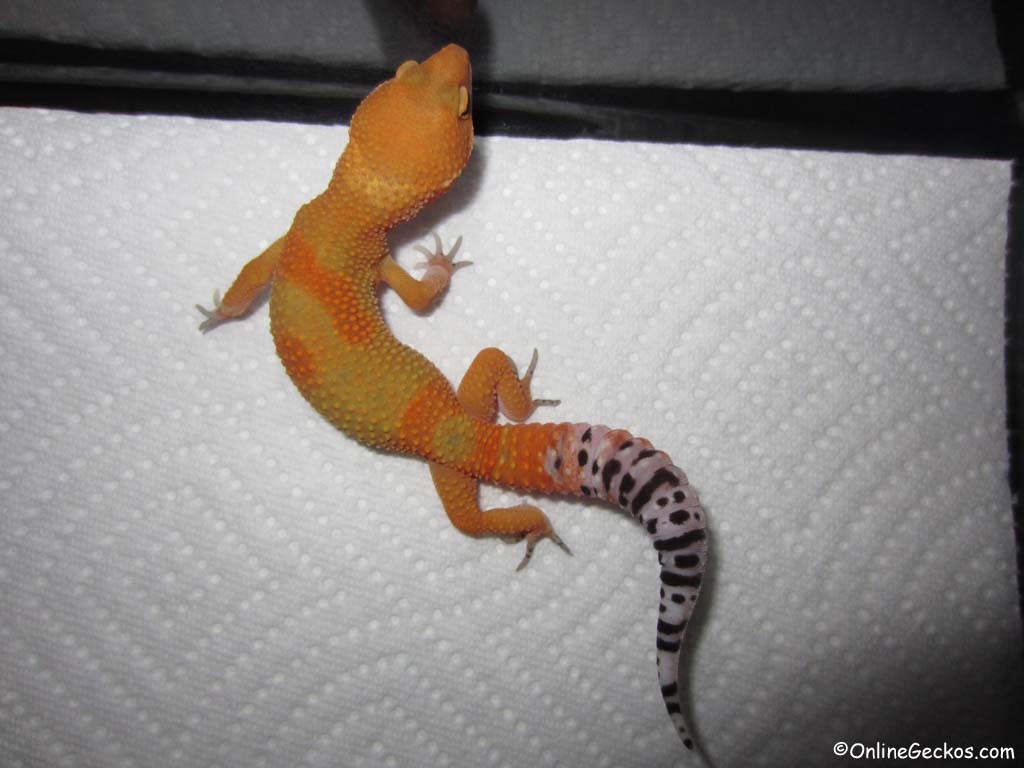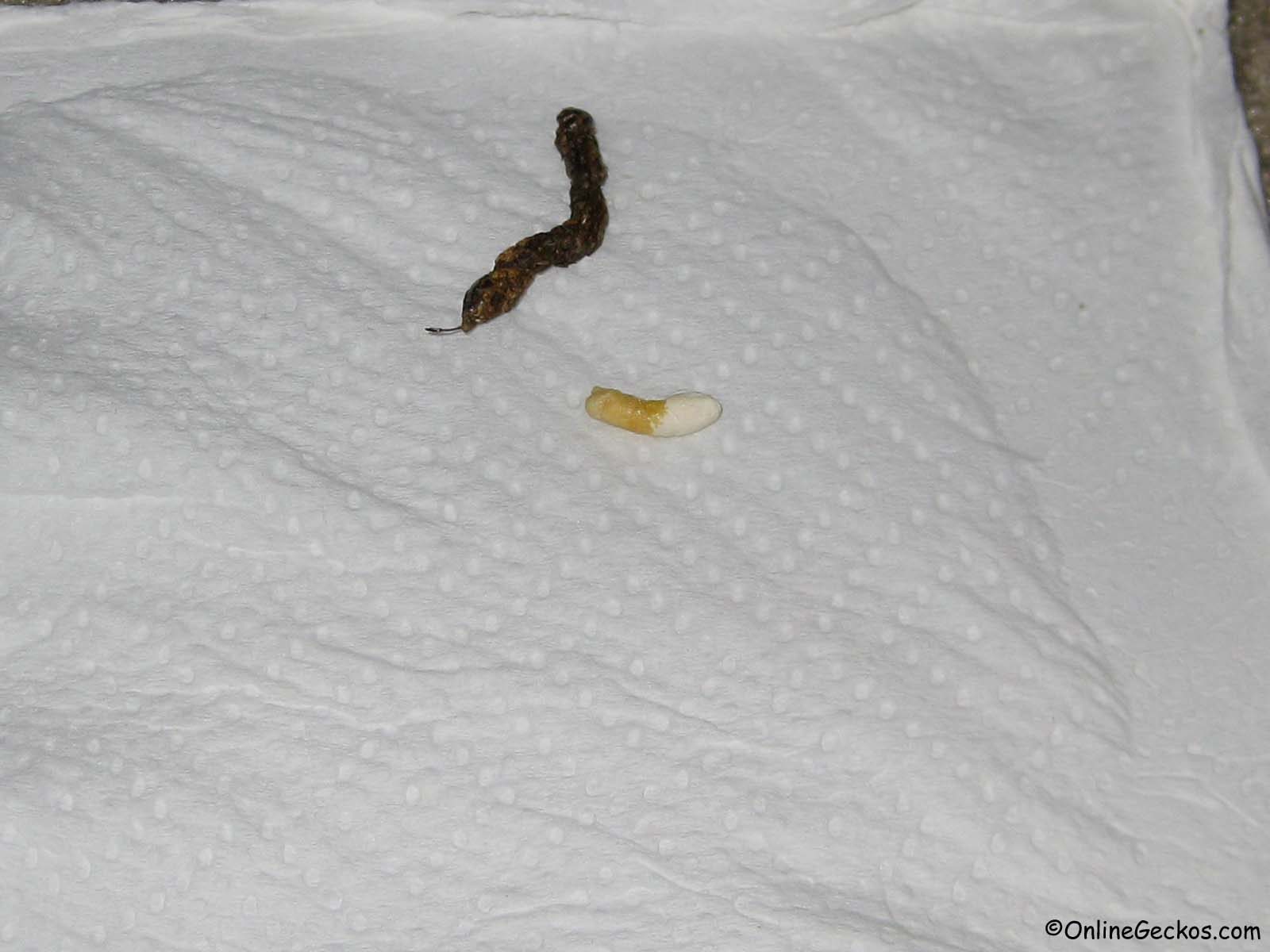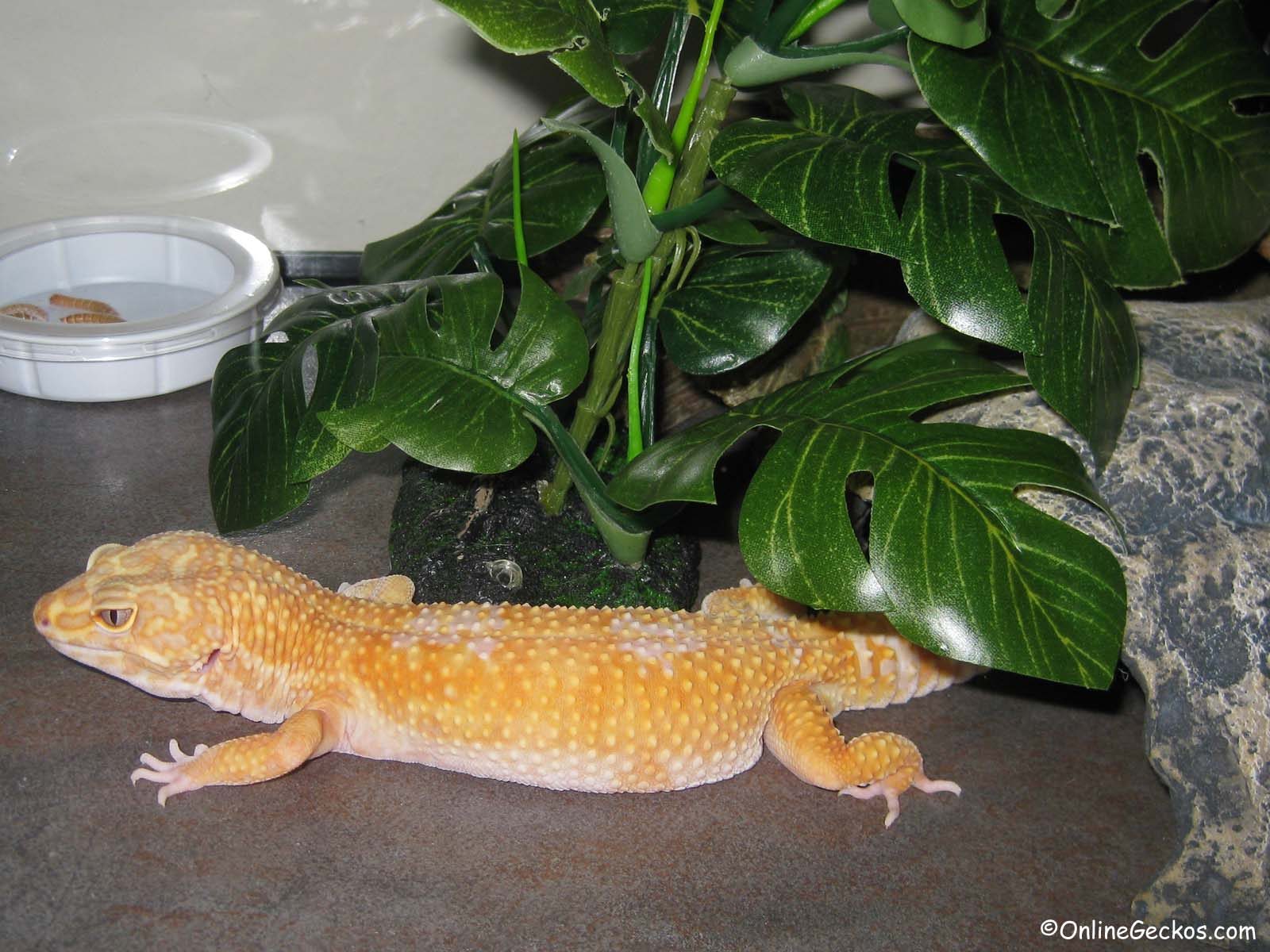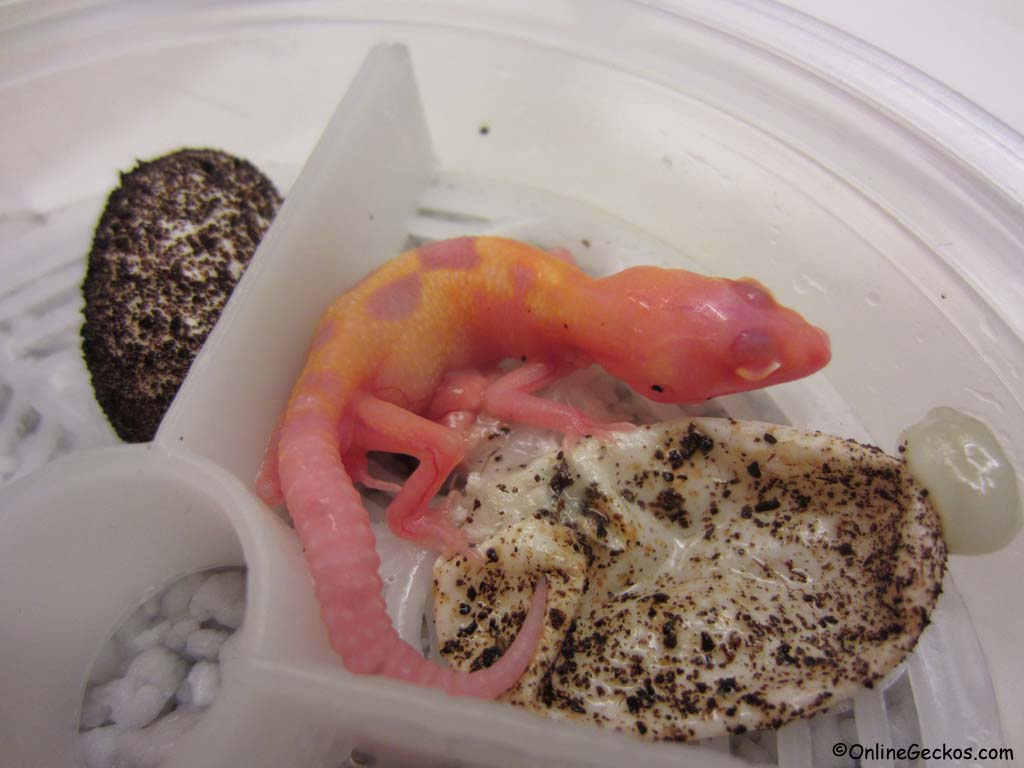I initially made this post on a gecko forum, but figured it may be helpful to those that find my blog via google search in the future. In this “So You Want To Breed” blog article, I’ll list the do’s and don’ts of breeding leopard geckos. This is a general guide for new breeders. Feel free to add comments to what I may have missed.
Don’t:
-Don’t mix the 3 albino strains (tremper, bell, rainwater), they are not compatible.
-Don’t breed if you are not sure of the genetics behind the parents.
-Don’t breed if you can’t afford to feed, house, and care for the hatchlings. From one single pairing you can expect 6-16 eggs.
-Don’t breed if you can’t afford unexpected vet costs when/if you should need to take your geckos to see a vet. Things happen, sometimes they get sick, sometimes they need specialist help. Make sure you have money stashed away for emergencies.
-Don’t breed if you see any abnormalities or genetic defects on your geckos, these include but not limited to tail kinks, eye crinkles, over/under-bite, crooked spine, etc.. Also don’t breed if your geckos suffer health issues such as MBD (metabolic bone disease), or severe enigma syndrome. Continue reading “So You Want To Breed – Do’s and Don’ts of Breeding Leopard Geckos”
